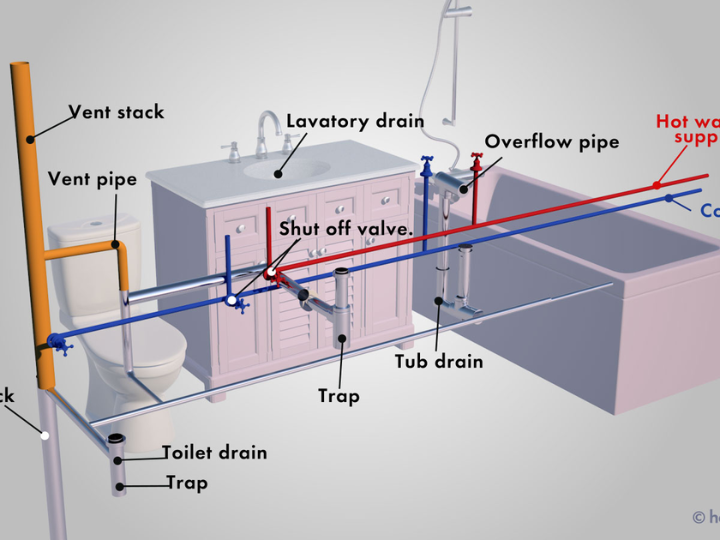Introduction:
Embarking on the journey of homeownership brings with it the responsibility of maintaining and understanding your home’s plumbing system. While plumbing intricacies can seem daunting, having a basic understanding empowers you to address minor issues and communicate effectively with professionals when needed. In this blog post, we’ll provide a Plumbing 101 guide for homeowners, covering fundamental concepts that will help you navigate the pipes with confidence.
- Know Your Main Shut-Off Valve:
- Familiarize yourself with the location of the main shut-off valve for your water supply. In case of emergencies or repairs, being able to quickly turn off the water to your entire home can prevent significant damage.
- Understand Your Water Heater:
- Know the type of water heater you have (tank or tankless) and its location. Understand how to adjust the temperature and perform basic maintenance tasks, such as flushing the tank to remove sediment.
- Identify Key Plumbing Fixtures:
- Get to know the key plumbing fixtures in your home, including sinks, toilets, showers, and faucets. Understanding how these fixtures work will help you troubleshoot issues and communicate effectively with plumbers.
- Learn to Read Your Water Meter:
- Familiarize yourself with your water meter and how to read it. Monitoring your water usage can help you detect leaks early and manage your water bills more effectively.
- Prevent Frozen Pipes in Winter:
- During colder months, take steps to prevent frozen pipes. Insulate exposed pipes, keep cabinets under sinks open to allow warm air circulation, and let faucets drip during extreme cold to prevent freezing.
- Recognize Common Signs of Leaks:
- Be aware of common signs of water leaks, such as damp spots, mold growth, and unexplained increases in water bills. Detecting leaks early can save you from extensive damage and costly repairs.
- Basic Plumbing Tools:
- Equip yourself with basic plumbing tools, including a plunger, pipe wrench, and plumber’s tape. These tools can help you handle minor issues and emergencies until professional help arrives.
- Regularly Clean Drains:
- Implement regular drain cleaning practices using natural methods like baking soda and vinegar. This helps prevent clogs and keeps your plumbing system flowing smoothly.
Conclusion:
Arming yourself with the basics of plumbing not only enhances your ability to address minor issues but also ensures you can communicate effectively with plumbing professionals when more complex problems arise. By understanding key components of your plumbing system and practicing preventive measures, you’ll navigate homeownership with greater confidence and keep your home’s plumbing in optimal condition.
